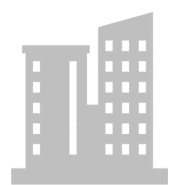Gateway software solutions is service based software Development Company mainly focusing on business consulting, software engineering, information technology, training (academic and corporate level) and consultancy.
Our areas of expertise in development include ERP, CRP, HRM, POS, Website Development and Web Hosting.
Our areas of expertise in training include JAVA, J2EE, DOTNET, PHP, PYTHON, TESTING, AI, ML, CYBER SECURITY, CLOUD COMPUTING and so on. A team of technical expertise will be managing the training with regularly updated syllabus.
Pre employment program (Internship) is provided throughout the year for the upcoming graduates for more exposure towards the industry.
PLACEMENT TRAINING
Placement training typically involves a structured program designed to prepare students or job seekers for recruitment processes. Here are some key components often included in placement training:
1. Aptitude Training :
- Quantitative Aptitude: Topics like arithmetic, algebra, geometry, and data interpretation.
- Logical Reasoning: Puzzles, logical sequences, and pattern recognition.
- Verbal Ability: Grammar, vocabulary, reading comprehension, and verbal reasoning.
2. Technical Training:
- Core Subjects: Depending on the field, this may include subjects like programming, engineering principles, or domain-specific knowledge.
- Coding Practice: For IT and computer science placements, practicing coding problems on platforms like LeetCode, HackerRank, or CodeSignal.
3. Soft Skills Training:
- Communication Skills: Enhancing verbal and written communication.
- Group Discussions: Techniques to perform well in group discussions.
- Presentation Skills: Preparing and delivering effective presentations.
4. Resume Building:
- Resume Writing: Crafting a professional resume tailored to job applications.
- Cover Letters: Writing compelling cover letters that highlight skills and experience.
5. Mock Interviews:
- Technical Interviews: Simulated technical interviews with feedback.
- HR Interviews: Mock HR interviews to practice common questions and responses.
6. Industry Awareness:
- Company Profiles: Understanding the companies you are applying to, including their culture, recent news, and job roles.
- Current Trends: Keeping up with industry trends and developments.
7. Internships and Projects:
- Practical Experience: Encouraging internships or project work to gain hands-on experience.
- Portfolio Development: Creating a portfolio of projects or case studies.
8. Workshops and Seminars:
- Expert Sessions: Attending sessions by industry experts to gain insights and tips.
- Career Counseling: One-on-one or group counseling sessions to guide career choices.
By engaging in these training activities, candidates can significantly enhance their readiness for placement processes, increasing their chances of securing a desirable job.
TRAINING BENEFITS
Placement training offers numerous benefits for students and job seekers. Here are some key advantages:
1. Skill Development: Enhances technical and soft skills such as communication, teamwork, and problem-solving, making candidates more well-rounded.
2. Industry Readiness: Familiarizes candidates with industry expectations and standards, bridging the gap between academic knowledge and practical application.
3. Interview Preparation: Provides mock interviews, resume building, and interview tips to help candidates perform better in actual job interviews.
4. Confidence Boost: Builds confidence through practice and feedback, helping candidates present themselves more effectively.
5. Networking Opportunities: Facilitates connections with industry professionals and peers, potentially leading to job referrals and collaborations.
6. Better Job Prospects: Increases the chances of securing job offers from reputable companies by showcasing preparedness and competence.
7. Understanding Recruitment Processes: Educates candidates about various recruitment stages, such as aptitude tests, group discussions, and technical rounds.
8. Personalized Guidance: Offers personalized coaching and mentorship to address individual weaknesses and enhance strengths.
9. Career Clarity: Helps in identifying career interests and goals, aligning job search efforts with personal aspirations.
Placement training equips candidates with the necessary tools and knowledge to succeed in the competitive job market.
OUTCOMES
Here are the key outcomes of placement training in a simplified format:
1. Improved Job Readiness: Enhanced soft and technical skills, better interview and resume preparation.
2. Successful Placements: Higher job placement rates in reputable companies.
3. Industry Exposure: Networking opportunities and insights into industry trends.
4. Personal Growth: Increased self-confidence and clarity in career goals.
MILLESTONES:
1. Orientation:
- Overview of the placement process and schedule.
2. Skill Assessment:
- Evaluation of technical, analytical, and soft skills.
3. Resume Building:
- Creating effective resumes and cover letters.
4. Aptitude and Technical Training:
- Training in quantitative, logical reasoning, and domain-specific skills.
5. Soft Skills Development:
- Enhancing communication, teamwork, and problem-solving skills.
6. Mock Interviews and Group Discussions:
- Practice sessions with feedback.
7. Company-Specific Preparation:
- Tailored training for specific companies or roles.
8. Placement Drives and Offer Management:
- Coordination of recruitment events and guidance on evaluating job offers.

 Gmail
Gmail
 Gmail
Gmail


































